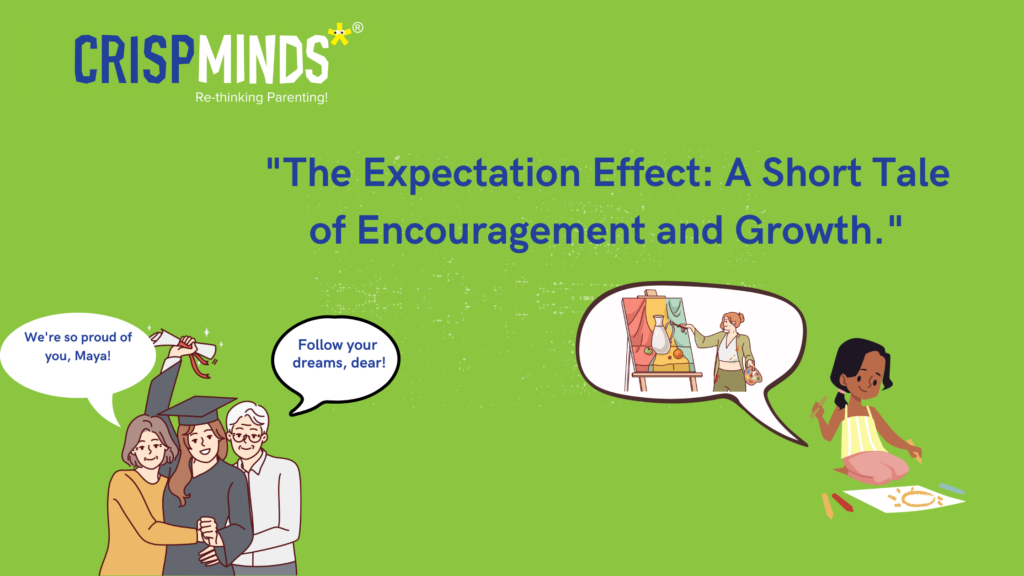Parental expectations play a pivotal role in shaping a child’s upbringing. They are the hopes, dreams, and aspirations that parents have for their children’s future. While these expectations can be a source of motivation and guidance, they can also exert significant pressure on young shoulders. This phenomenon, known as the “Expectation Effect,” has profound implications for children’s development and well-being.
The Dual Nature of Parental Expectations
Parental expectations are like a double-edged sword. On one side, they can inspire and motivate children to strive for excellence. Parents often set high standards with the belief that their children can achieve great things. These expectations provide a sense of purpose and a roadmap for success.
However, on the other side, overly high or rigid expectations can create stress and anxiety in children. When the pressure to meet these standards becomes too intense, it can lead to feelings of inadequacy, performance anxiety, and a host of mental health challenges.
How Parental Expectations Impact Children
The impact of parental expectations on children is multifaceted and can manifest in various ways:
1. Performance Pressure
Children may feel intense pressure to meet or exceed their parents’ expectations academically, athletically, or in other areas of life. This pressure can lead to stress and burnout.
2. Stress and Anxiety
High parental expectations can contribute to elevated stress and anxiety levels in children. The fear of falling short of these expectations can be emotionally taxing.
3. Conflict and Strained Relationships
Unrealistic or demanding expectations can lead to conflicts between parents and children, straining the parent-child relationship.
4. Self-esteem Issues
Children who constantly feel like they’re falling short of their parents’ expectations may develop low self-esteem and a negative self-image.
5. Rebellion or Resignation
Some children may rebel against these expectations, while others may simply give up, feeling that they can never meet the standards set for them.
Striking the Right Balance
While it’s important to have expectations for children, it’s equally crucial to strike the right balance. Here are some guidelines for parents to consider:
1. Realistic Expectations
Set expectations that are realistic and attainable for your child’s age, abilities, and interests.
2. Open Communication
Maintain open lines of communication with your child. Encourage them to express their own goals and aspirations.
3. Offer Support, Not Pressure
Instead of applying pressure, offer support, guidance, and resources to help your child achieve their goals.
4. Celebrate Effort, Not Just Results
Celebrate your child’s efforts and progress, not just their achievements. This helps build resilience and a growth mindset.
5. Acknowledge Uniqueness
Recognize and celebrate your child’s unique strengths and talents, even if they don’t align with your own expectations.
The Path to Balanced Expectations
The “Expectation Effect” is a powerful force in a child’s life. When harnessed correctly, it can be a source of motivation and empowerment. However, when left unchecked, it can lead to stress, anxiety, and strained relationships. Striking the right balance by setting realistic expectations and providing unwavering support is the key to nurturing a child’s growth and self-discovery.
As parents, caregivers, and mentors, our role is not just to shape our children to meet our expectations but to help them become the best versions of themselves. It’s through this balanced approach that we can truly unlock the potential of the “Expectation Effect” and empower our children to thrive in their unique ways.
In the end, what matters most is not whether children meet their parents’ expectations, but whether they grow into confident, compassionate, and resilient individuals who can confidently navigate the complexities of life.
This short narrative beautifully encapsulates the “Expectation Effect.” Parental expectations have the power to guide, but they can also stifle a child’s unique talents and passions. The message here is clear: Let’s nurture our children’s passions and allow them to flourish in their unique ways. It’s about supporting them in following their dreams while finding a balance that honours their individuality.
In this brief story, we witness the transformational power of support and understanding in a child’s life. As parents, caregivers, and mentors, it’s vital that we encourage our children to embrace their passions, guiding them with love and allowing them to shine as the unique individuals they are.
The Expectation Effect: A Short Tale of Encouragement and Growth is a reminder that each child’s journey is beautifully unique, and it’s our role to foster an environment where they can thrive as their true selves.

